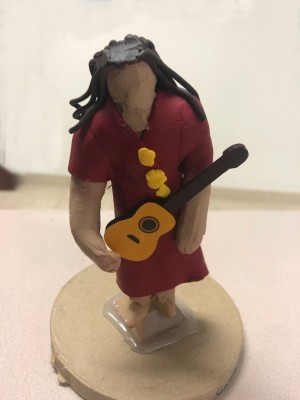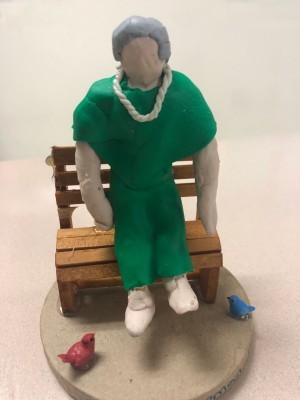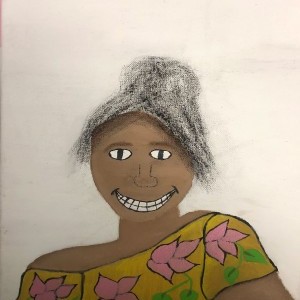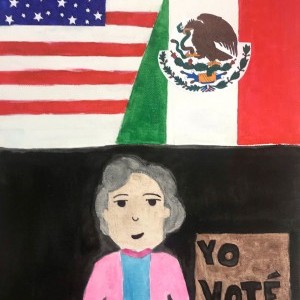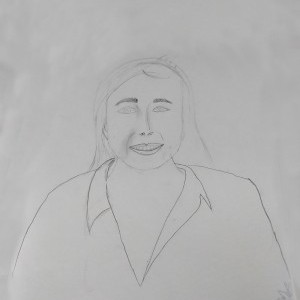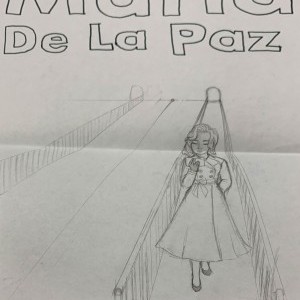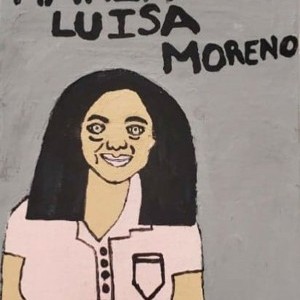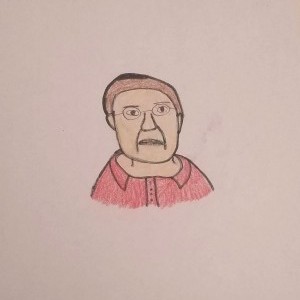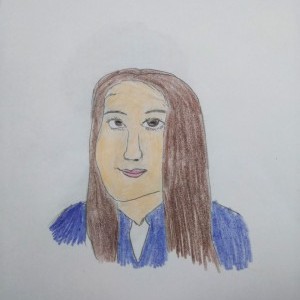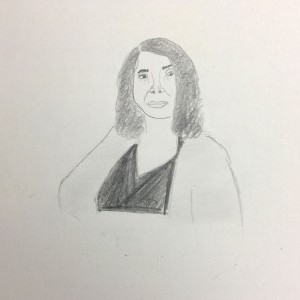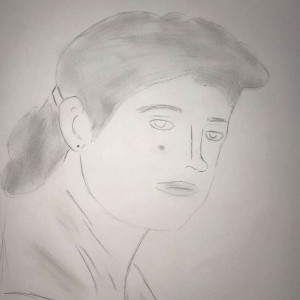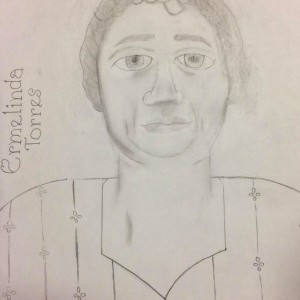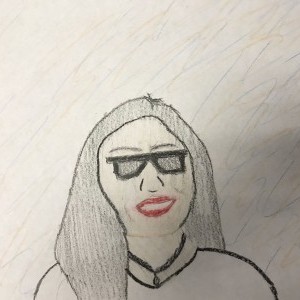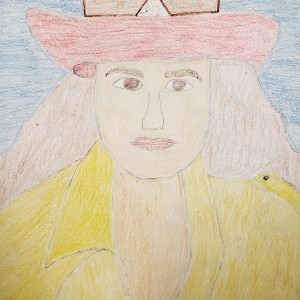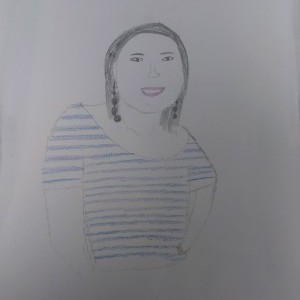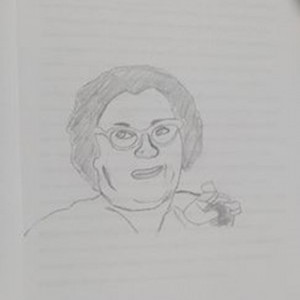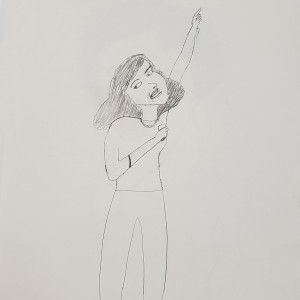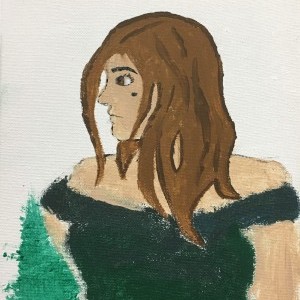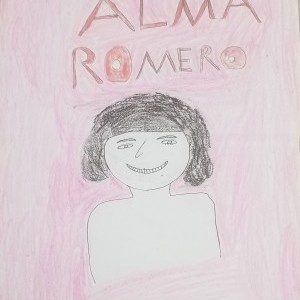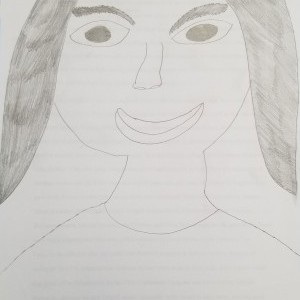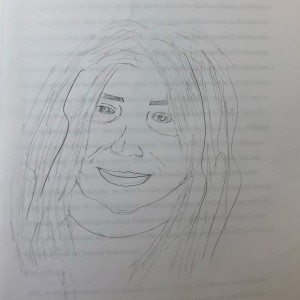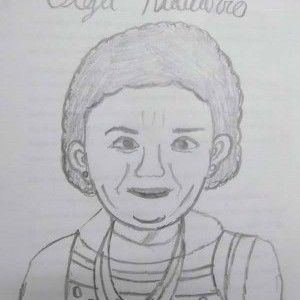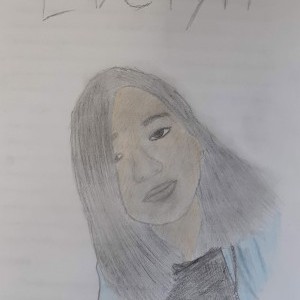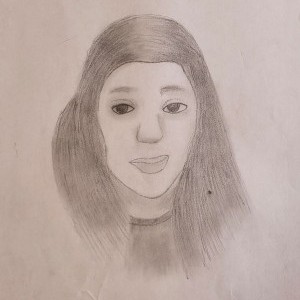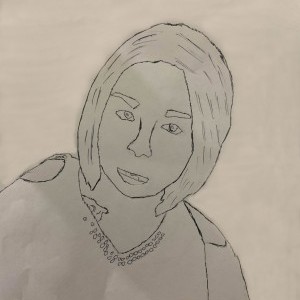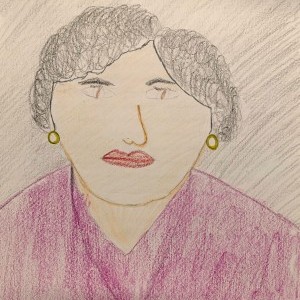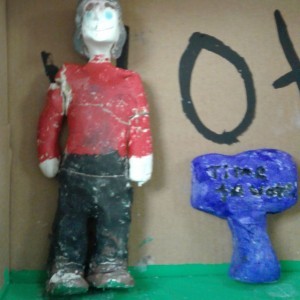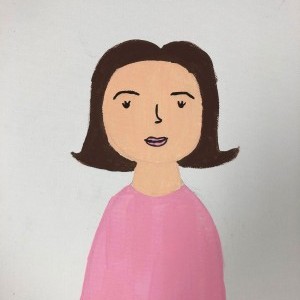MIguel Cabello
García Early College High School | Laredo, TX | 10th Grade
Inspirational Family Member
My Two Great-Aunts
This is the true story of how my two great-aunts were granted the right to vote. It was 1923 when my two great-aunts became citizens of the United States. My two great-aunts were Abelina and Julianita Camarillo. They were born in a hacienda in Mexico near Sabinas, Hidalgo Nuevo Leon.
The two sisters were born in the late 1800s. They came to the United States to meet up with their brother, my great-grandfather Nicandro Camarillo and his wife Feliciana, my great-grandmother, in the early 1900s. They were in their early twenties when they came to Laredo, Texas. They came in search of a better life as all people who migrate to the United States do. They crossed the bridge when no documentation was needed. My family still talks about how the bridge crossing in Laredo was not a barrier during those days and people would travel back and forth without restrictions.
The two sisters, my great-aunts, wanted to work and fit in. They found jobs cleaning homes for wealthy families in the area. They quickly realized that in order to make a difference, they needed to become active citizens of Laredo. They applied for citizenship. They went through the process and became US citizens in early 1923. From what I am being told by my family, they quickly learned to read and write English. The two sisters helped their brother with his family and became very active in their community. They became exemplary citizens. They were strong participants with their church, actively served their community with food and housing activities.
In those days, my two great-aunts were probably considered activists. The two sisters never married and I was told that they felt the freedom to live in a country where no government or man could stop them from restricting their activities. They were strong and very independent. They loved to exercise their freedom to vote. I don't know exactly what election they would have voted on first. I would imagine that it would have been a local election since the Presidential Election did not occur until 1924 where President Calvin Coolidge, a Republican defeated a Democrat, John W. Davis. My guess is that they must have surely voted for the democrat, John W. Davis. From what I gather from my family, all generations in my family since we can remember have supported the Democratic party. There has not been one member of my family who has been or voted as a Republican. I don't know how they must have felt but I hope that they were not too disappointed after that first election in 1924!
Historical Figure I Admire
Carrie Chapman Catt
Around the mid-1800s, a new movement was being formed that was destined to change the world in unimaginable ways; said movement was known as The Woman's Suffrage Movement. The Woman's Suffrage Movement was aimed at giving women the same rights that were given to men, most notably the right to vote. Many women were sent to prison due to their protests and desire for basic rights. However, we will not be talking about the injustices inflicted upon these women but rather, we will be focusing on one of the many courageous women that fought to give today's women the right to vote, Carrie Chapman Catt.
Carrie C. Catt was born on January 9, 1859 in Ripon, Wisconsin; her parents were Lucius and Maria Clinton Lane according to Carrie Chapman Catt: A Public Life Written by Jacqueline Van Voris. In the early years of Carrie's life both parents decided to move on a farm house in Iowa to get way from certain aspects of city life. Cattie was the only girl and the second oldest of three siblings. As a child, Carrie was described as an independent child who had limitless energy and questions, most of which her parents enjoyed answering. One day, on 1872, while doing her chores, Carrie noticed that her father, along with his employees, were preparing to go to the city do their civic duty and vote. Carrie's mother on the other hand, was paying no mind to them and not preparing to go to the city. Curiously, Carrie asked her father about the matter, he and his employees proceeded to laugh. Only after the laughing had died down, her father then explained that women were not allowed to vote because the civic duties that voting creates would be too much for a woman to handle and would lead them astray. Due to this comment being said to her, Carrie decided to dedicate her each breath to see the action of a women making vote.
After graduating at Charles City High school Carrie set her eyes on college, Iowa State Agricultural College to be exact. Luckily, she was accepted and in 1880, she graduated from the college with top scholar I might add, the only woman in her class to do so. While in college, Carrie created the college's first Women's Military Drill Unit and practiced her public speaking skills to better spread awareness about women's suffrage. Fast forward a couple years she began to write about issues that women had for Mason City News Paper. Carrie's writings for the newspaper was considered to be her first official statement on the topic of women's suffrage and how she supported it.
On October 1889, Carrie attended a state suffrage convention and while there, she became a recording secretary. Her luck soon improved with each convention and meeting she attended, this was due to her “stunning energy” while she spoke. Her excellent speaking voice and overall appeal was overwhelming and soon she gained popularity, which, in turn, allowed her to climb the ranks of the National American Women's Suffrage Association. In 1900 Susan B. Anthony asked her to be her successor for said association. As association president, Carrie would visit half a dozen states and attended countless campaigns for women's suffrage. After unforeseen circumstances, Carrie resigned as the association's president and decided to focus on worldwide suffrage. At the 1915 rally, Carrie Chapman Catt was reassigned as association president and because of this, most women stated that it wasn't a matter of whether but a question of when they'd get to vote. On August 26, 1920, Tennessee became the 36th state to allow women to vote meaning that, every state now had to allow women to vote. Carrie named this day “The happiest day of her life.”
To conclude, the legacy that Carrie Chapman Catt left behind was quite extraordinary to say the least. Due to her constant questioning as a child she guided women to the right to vote. Just imagine if she were just to accept her father's answer…how the world would be different now.
SOURCES +
What the Project Means to Me
In doing my research of my two great-aunts, I was not aware of the history on my mother's side of the family. I knew my grandfather was born somewhere in Mexico, but I did not know how it all came to be. I was happy to hear that family sticks together and how the two sisters followed their brother. They traveled by horse and arrived in Laredo; that must have been a very tiring trip for them. What courage must they have had to leave it all behind in search for a new life. I realize that whatever they left behind in Mexico (including their parents) was a very important decision for them to make. This country was more valuable to them than what they left behind back in Mexico. I believe that they never regretted the decision to move and become citizens of the United States. It is demonstrated in their active involvement in their community, helping their church, family, and neighbors when they were not working to make a living.
I believe that voting matters so much and it is so important to exercise our rights. Especially knowing now how my ancestors came to Laredo by crossing the border. I reflect on all the current border problems and the building of a wall, which our current President, a Republican, wants to build. My great aunts are probably flipping in their graves wanting to voice their concerns and stop all this non-sense since they, like so many others, made better lives for themselves and their community by migrating to the United States.
Explore the Archive
More From This Class
Click on the thumbnails below to view each student's work.Deadline Extended
There's still time to join Women Leading the Way.
Become a part of our storytelling archive. Enroll your class today.
Join the Project

